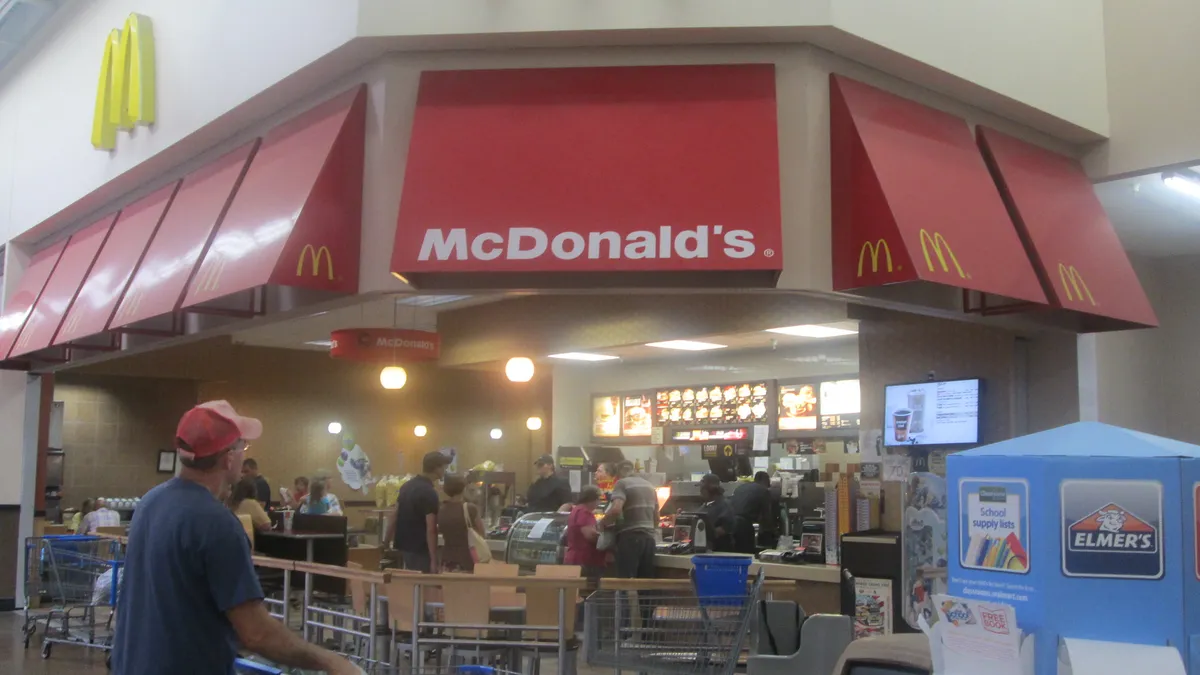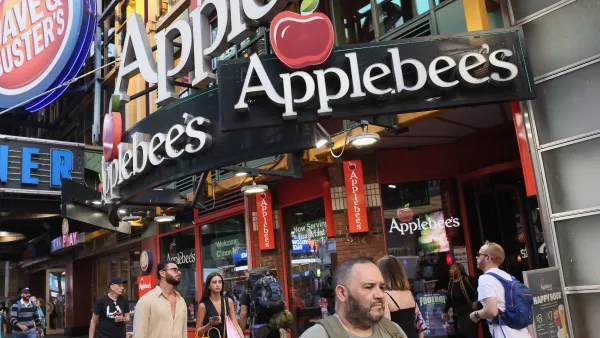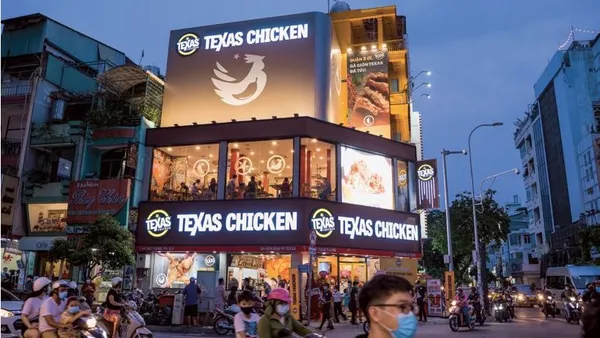Dive Brief:
- McDonald's confronted a 2% increase in commodities costs through the first nine months of the year and expects those costs to grow up to 4%, "which will put a little bit of additional pressure on the fourth quarter," CEO Chris Kempczinski told investors on an Oct. 27 earnings call.
- The world's biggest restaurant chain also faced difficulties procuring kitchen equipment. Slowdowns in the construction supply chain, related to materials shortages and labor availability, contributed to delayed openings of some new restaurants, Kempczinski said on the call.
- McDonald's is closely monitoring its global network of suppliers to adjust to challenges, the CEO said.
Dive Insight:
Across the restaurant industry, commodity prices have soared, with beef up nearly 60% YoY, fats and oils up 50% and eggs up nearly 40%, according to the National Restaurant Association.
The FAO Food Price Index, which measures monthly changes in international food commodities prices, rose more than 31% YoY in October, reaching its highest level since July 2011. The increase was primarily driven by strong prices of vegetable oils and cereals, FAO reported.
McDonald's and its franchises have raised prices 6% to cover rising commodities costs and other supply chain challenges. In the earnings call, Chief Financial Officer Kevin Ozan attributed the escalated prices to "pressure on commodities, certainly some pressure on labor availability and cost, supply chain disruptions, etc." A McDonald's spokeswoman did not respond to a request to elaborate further.
The fast food giant's commodity cost concerns are shared by counterparts in the manufacturing industry. Raw material prices were the focus of 84% of manufacturers' October comments to the Institute of Supply Management's Business Survey Committee, said committee chair Timothy R. Fiore in a conference call Monday.
Parts and labor shortages, along with logistics challenges, have caused long backlogs in kitchen equipment orders for restaurants and at-home chefs alike. Demand for commercial kitchen equipment is likely to remain high: Food and beverage is one of the three most active business areas in industrial construction, said Richard Branch, chief economist at Dodge Data & Analytics.
McDonald's has relied on its massive network of suppliers around the globe for equipment, ingredients and other materials.
"Our supply chain does a phenomenal job of just managing the whole process, making sure that we've got contingency plans," Kempczinski said. "We're in touch extremely frequently with all of our suppliers, and I feel pretty good about where we are compared to where others may be just because of the strength of our supply chain."
This story was first published in our Procurement Weekly newsletter. Sign up here.
















